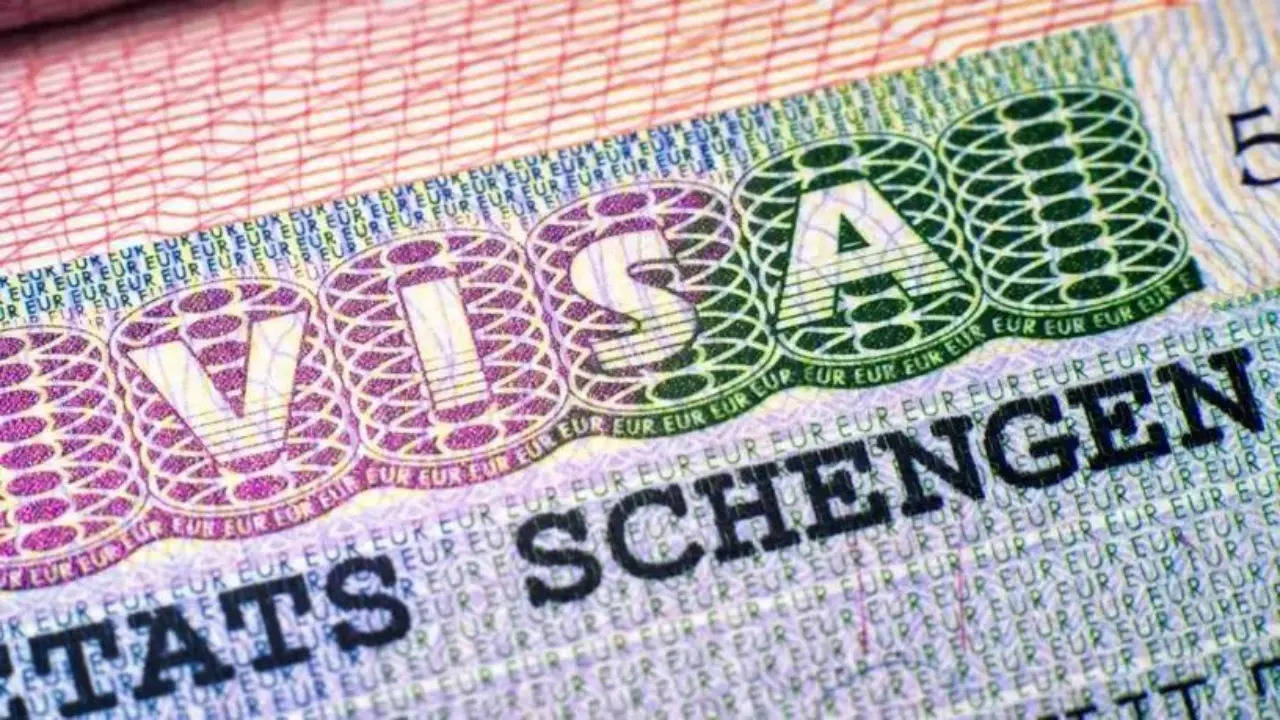
Across the world, the travel industry is in the throes of a massive transformation. Amidst a volatile macro-economic scenario, traveller preferences are rapidly changing. In addition, the industry currently faces inflationary costs, an acute shortage of skilled talent and is increasingly under scrutiny to adopt more sustainable and green ways of operating.
Even as these challenges persist, the industry, which includes aviation, hospitality, and travel services, can take heart in the fact that traveler sentiment remains upbeat. Months of being cooped up indoors during the pandemic has had a profound impact on consumers, reminding them that travel is more than just the trip. Instead, it is about forming human connection. An Industry Consumer Pulse Survey 2023, which surveyed over 10,000 individuals from 16 countries found that 71 per cent of consumers plan to sustain or increase their spending on leisure travel even as they consider limiting spending across most other discretionary categories.
We believe that travel businesses must build a strong digital core to not just stay relevant but also thrive in this scenario and prepare themselves for the next wave of disruption. A robust digital core is imperative to building resilient business operations, boosting employee productivity, tapping new revenue streams, and most importantly, creating memorable experiences for travellers.
There is no ‘one size fits all’ digital approach
As per industry estimates, global airline passenger traffic is estimated to touch 9.4 billion passengers in 2024. Every year, some of the world’s largest hotel chains offer over a million rooms to guests each, and some car rental companies operate a fleet size of over a million cars each. Given the large scale and complexity of operations, and the diversity of operating models, processes and traveler needs, there is no ‘one size fits all’ approach to building a strong digital core.
Let’s look at this in the context of hotel chains. While all hotels want to deliver great guest experiences, select-service brands prioritize efficiency, have minimal workforce, and rely heavily on standardised processes. As a result, they need a Software as a Service (SaaS)-based lightweight workforce management platform and strong operational insights to maximise efficiency. On the other hand, upscale luxury hotel brands tend to prioritize full-service offerings, well-trained staff, and personalized services. They would typically need a best-in-class workforce management platform along with strong data-led personalisation capabilities integrated into a comprehensive CRM solution.Hence, travel businesses must design and develop their digital core and technology strategy in line with their unique requirements. Interoperable platforms and modular systems, cloud-native operating models, a strong data foundation, artificial intelligence capabilities, and security embedded in everything are all essential elements of this strategy.
Cloud capabilities are vital
Travel companies need to build a solid foundation for change, using the cloud to drive resilience and future growth. The Cloud’s inherent on-demand variability and uninterrupted global connectivity enables businesses to handle surges in business demand. A case in point is how Taylor Swift’s ‘The Eras Tour’ catapulted the demand for airline tickets and hotels in cities on the tour circuit. In situations like this, pricing systems need to be agile, capitalize on the demand, and swiftly distribute new rates across the sales channels. Similar nimbleness is also required during phenomenon like the volcanic ash clouds that can completely upend flight schedules at a very large scale. These situations need enhanced compute power and low-latency connectivity that the cloud offers.
Data-led and AI-powered travel operations
Travel businesses are no stranger to AI adoption – they have been applying AI to growth, experience, and productivity related use cases for some years now. It has been proven that leveraging AI at scale can help create personalised experiences, anticipate travelers’ needs, provide real-time assistance, and help travel companies streamline their operations, empower their employees, and reduce costs. The addition of generative AI to the mix has only given a fillip to AI adoption. Generative AI can help travelers curate a perfect family holiday itinerary, enable an airport manager draw up numerous ‘what-if’ scenarios for gate assignments during heavy snow, and assist with optimal staff allocation.
A recent industry research found that AI-influenced revenue for travel companies more than doubled between 2018 and 2021 and is projected to triple by 2024. However, only 13 per cent of surveyed travel companies used AI to reinvent core parts of the business, which indicates the tremendous potential for AI adoption.
In order to capitalise on this opportunity, travel companies must put in place the right data and AI strategy, infrastructure and platforms that govern how data is captured, managed, processed, and how insights are visualized and consumed. Robust data governance, responsible AI practices and in-grained security are vital. Equally key are building data, digital and cloud skills in the workforce supplemented by new operating models, and data-driven ways of working.
Elevate the Purchase Experience
To appeal to today’s traveller, their omnichannel experience – be it through the web, mobile app or call center – during browsing and booking must be seamless, intuitive, stimulating and personalised. Organisations must focus on transforming their sales channels and offering differentiated product and experiences that deliver value across the customer journey.
While the travel industry has faced many a curve ball over the years, it has successfully reinvented itself time and again. Reinvention, however, is a continuous process, and having a strong digital core is vital to building resilient and future-ready travel businesses and creating outstanding experiences for travellers.
The author is the Managing Director and Lead for Travel industry, Advanced Technology Centers in India, Accenture.
DISCLAIMER: The views expressed are solely of the author and ETTravelWorld.com does not necessarily subscribe to it. ETTravelWorld.com shall not be responsible for any damage caused to any person/organisation directly or indirectly.
[ad_2]
Source link

People applying for visas to visit Europe‘s Schengen area will soon do so via an online platform, under a change adopted by EU foreign ministers on November 13.
The shift towards digitalisation of the visa process will also do away with the need for applicants to get a sticker in their passport, meaning no more appointments at consulates or service providers’ offices.
The change, unveiled after a long legislative process, will take effect after technical work on the visa platform, expected to take months, then publication in the EU’s administrative gazette.
The Schengen area comprises 23 of the 27 EU member countries plus associated neighbours Switzerland, Norway, Iceland and Liechtenstein.The online visa system “will simplify the application process for travellers,” said Spain’s Interior Minister Fernando Grande-Marlaska, whose country currently holds the EU presidency.
Once it is in place, people applying for short stays in the Schengen area will upload documents, data and electronic copies of their travel documents with biometric information, and pay fees, all through an online platform.
If approved after database cross-checks, they will receive a cryptographically signed barcode to print off or store in a device.
But some first-time applicants or those with a new passport or changed biometric data may still need to attend an in-person appointment.
Some countries, such as Australia, already have similar systems in place, where the online visa is linked to a person’s passport without the need for a sticker in it.
In most cases, citizens from more than 60 countries around the world, including Australia, Britain, Canada, New Zealand and the United States, do not need to apply for Schengen visas for short visits.But they will still be required to apply online for pre-screened entry under a much-delayed European Travel Information and Authorisation System (ETIAS), similar to the ESTA system employed by the United States. ETIAS is now expected to be up and running in mid-2025.
All visitors entering the European Union — with visas or visa waivers — will find themselves going through an automated EU Entry/Exit System (EES), whose implementation has also been much delayed but expected to be in place at the end of 2024.
The computerised EES will record a person’s details and biometric data along with their date of entry and exit, keeping track of overstays and refused entries.
[ad_2]
Source link

Finland has taken the global lead by unveiling the world’s first-ever digital passport. This innovation, in the form of a mobile app, lets travelers securely store and present their passport information on their smartphones, eliminating the need for carrying a physical document.
Launched on August 28, 2023, the initiative is a collaborative effort between Finland, Finnair, the Finnish police, and Finavia, the airport operator. This initiative aligns with a broader European Union (EU) plan to test digital passports in a bid to enhance travel technology and security measures.
The initial phase of the project involves travelers on select Finnair flights from Helsinki to the UK and vice versa. These travelers can register their digital passports at the Vantaa Main Police Station‘s license services. To participate, travelers are required to download the FIN DTC Pilot app, which utilizes facial recognition and biometric data to verify their identity.
Once registered, travelers can transmit their data via the app to the Finnish Border Guard within 36 to 4 hours before their scheduled departure. Upon arrival, they can use their smartphones to scan a provided QR code at the border control checkpoint. This approach is poised to expedite the travel process, making it not only faster but also more streamlined and secure, all while reducing the reliance on physical documents and minimizing human interaction.
The project is set to run until February 2024, during which it will be evaluated for its feasibility and user satisfaction.
Several other nations, including Poland, South Korea, the US, and the UK, are actively developing and implementing similar initiatives. Countries like Ukraine, Singapore, China, Estonia, and Israel have already introduced digital health or vaccine passports to facilitate travel, especially during the ongoing Covid-19 pandemic.
[ad_2]
Source link

India’s emerging fintech landscape has been a game-changer for the way people transact in the country. With the increased use of digital payments, the country has graciously welcomed the wave of UPI (Unified Payments Interface), becoming a global leader in instant payments. Recent facts state – that India alone accounted for 40 per cent of the total digital transactions globally in 2021, paving the way for a cashless economy.
Having said that, India, being culturally diversified, is recognised for its rich heritage that attracts millions of tourists every year and serves as a catalyst for the booming economy. However, the burgeoning tourism sector comes along with increasing hassles of making payments for foreign nationals arriving as tourists in the country. Owing to the universality of the ground breaking payment system – UPI, foreign nationals are striving toward a cashless and more inclusive payment system.
Challenges stagnating the influx of foreign tourists
The tourism industry in India is experiencing an upsurge, with Foreign Tourist Arrivals (FTAs) reaching 6.19 million in 2022, a substantial increase from the 1.52 million recorded during the corresponding period in 2021. However, several routine challenges inhibit foreign tourists from making digital payments in the country with ease. One of the biggest hassles that affect them is making payments in local currency and cash dependency. Until February 2023, UPI was not available to foreign tourists arriving in India. Their cash dependency and currency exchange hampered their travel experience, as they had to be more cautious in exchanging money to avoid unfavourable rates and fees. Additionally, the lack of adequate access to financial tools in India cultivates negative impressions in the minds of foreign tourists. For instance, credit and debit cards are widely accepted in larger cities and tourist destinations; however, some places still only accept cash. Certain types of cards may not be accepted, and international transaction fees levied on such transactions can pose a major inconvenience.
Moreover, tourists also face difficulties finding ATMs that accept foreign cards, especially in remote or rural areas. Several times, ATMs also run out of cash or have withdrawal limits, which can hamper their travel experience.
UPI augmenting financial inclusivity
UPI payments are propelling the nation towards digital payments. Today, the scan-and-pay system is available for all kinds of transactions – from a local tea vendor to a luxury retail outlet. Its simplified payment procedure has brought ease in payments for foreign tourists, enabling businesses to enhance their financial payment infrastructure while creating more avenues for tourists to make transactions.
As UPI is penetrating deeper in geographies and inclusivity, it is rapidly gaining momentum to revolutionise residents and tourists conduct transactions. The seamless payment infrastructure enables users to make transactions from multiple linked bank accounts on a single mobile application of third-party app providers anywhere at any time. The ease of UPI has bridged several gaps in financial accessibility, universality, and inclusivity across the country.
RBI’s intervention
As a relief to foreign travellers in India, the Reserve Bank of India (RBI) has introduced a policy to bring ease in making local payments. The announcement comes as a game-changer for the tourism sector as foreign travellers and NRIs can experience hassle-free payments via UPI at over five crore merchant outlets in the country.
As India takes on the role of hosting the G20 summit, UPI has garnered significant attention within the country among international travellers. Under this provision, the RBI has permitted global travellers to enrol in the PPI system using their international phone numbers. They can complete the KYC process using their passport and visa information, which then allows them to become fully integrated into the UPI framework. Once onboarded, they have the capability to directly add funds to their prepaid UPI wallet and make purchases. The NPCI has extended this facility to all G20 nations, including the United States, Germany, Australia, the United Kingdom, Russia, France, Italy, Canada, and others.
The rise of UPI and its increased accessibility has simplified the user experience for foreign tourists, enabling them to transact effortlessly during their stay. Several fintechs are stepping forward in India’s quest for a digitally driven fintech landscape. From residents to non-residents, India is making UPI – the largest instant payment network with cross-border experiences.
The author is the Co-Founder & CTO of CheqUPI.
DISCLAIMER: The views expressed are solely of the author and ETTravelWorld.com does not necessarily subscribe to it. ETTravelWorld.com shall not be responsible for any damage caused to any person/organisation directly or indirectly.
[ad_2]
Source link









